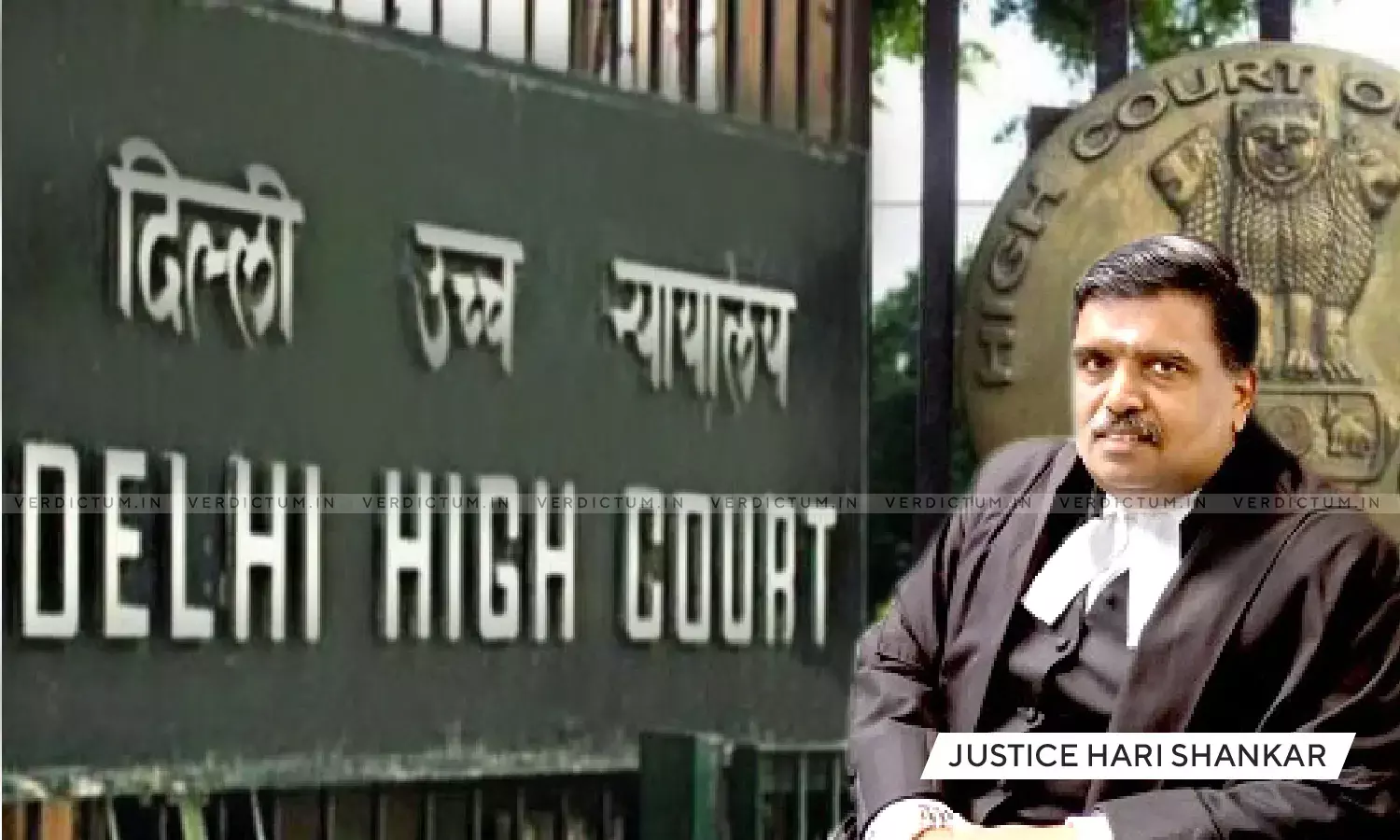RTE Act | If School Fails To Fulfil Minimum Quota Of EWS/DG Student, Backlog Can Be Filled Up In Next Year In Next Higher Class: Delhi HC
The Delhi High Court has observed that if a School falls short of admitting the mandatory minimum quota of EWS or DG students, the backlock can legitimately be filled up in the next year in the next higher class.
In that context, the Bench of Justice C Hari Shankar observed that, "the RTE Act envisages 25% as the minimum quota of EWS/DG students which an unaided school would have to admit in a year, reckoned as a percentage of the number of general category students that it admits for that year. Undoubtedly, this is a statutory mandatory imperative, and if a School falls short of fulfilling this is imperative in a particular area, it can legitimately be directed to fill up the backlog in the next year in the next higher class."
In furtherance of the same, it was held that, "The Court cannot foist, on the respondent-School, a liability that the law does not cast on it, merely on sympathetic considerations. It is not possible, therefore, for the Court to grant the mandamus that the petitioner seeks, by directing the respondent-School to continue to educate the petitioner as an EWS candidate."
Counsel Aayush Agarwala and Counsel Siddham Nahata appeared for the petitioner, while Counsel Namit Suri, along with others, appeared for the respondents.
In this case, the mother of a 5-year-old girl filed a plea after her daughter faced denial of admission in KG or Pre-Primary classes under the EWS/DG category on three occasions, for the academic sessions of 2021-2022, 2022-2023, and 2023-2024.
The High Court observed that the word "strength" in Section 12(1)(c) of the RTE Act has necessarily to be read as meaning the total number which the School is in a position to admit in that year. In that context, it was noted that, "Section 12(1)(c) of the RTE Act requires a school, falling under Section 2(n)(iv), to admit, in Class I, at least 25% of the strength of that class. The proviso to the clause extends its operation to preschool classes, where the school provides pre-school education. Though the expression “strength” is not defined in the clause, or indeed elsewhere in the RTE Act, it has necessarily to mean the number of students actually admitted. Else, it would lead to an incongruous situation in which, if a school has place for 100 students in Class I, but is able to admit only 20 General category students, it would be compelled to admit at least 25 EWS/DG students."
With that background, it was observed that the Court could not, in its zeal to protect the interests of the student, compromise on the fees which the unaided school can legitimately earn, as such fees would be its sole source of sustenance. In light of the same, it was observed that, "Where, however, there is in fact no shortage in the number of EWS/DG candidates which the school was required to admit, to fulfil the 25% limit, in a particular year, it would be not only unfair but also illegal to regard the school as having unfilled vacancies, which can be carried forward to the next year. The carry forward principle can apply, therefore, only where there is a shortage in feeling of EWS/DG vacancies in earlier years, reckoned as a percentage of the number of general category students that the school has admitted."
Noting that the student was innocent in the transpiring circumstances, the Court ordered that she continue to study as an EWS student in Class I in the respondent-School till the end of the academic year. It was further ordered that the e DOE shall ensure that she is admitted to Class II in one of the neighbourhood schools in 2024-2025 as an EWS/DG candidate, and continues to receive education in the said school till the age of 14, as per the provisions of the RTE Act, and that the DOE shall bear the fees for education of Amitanjali in accordance with the RTE Act.
Cause Title: Anjali Pandey vs Govt of NCT of Delhi & Anr.
Click here to read/download the Judgment












